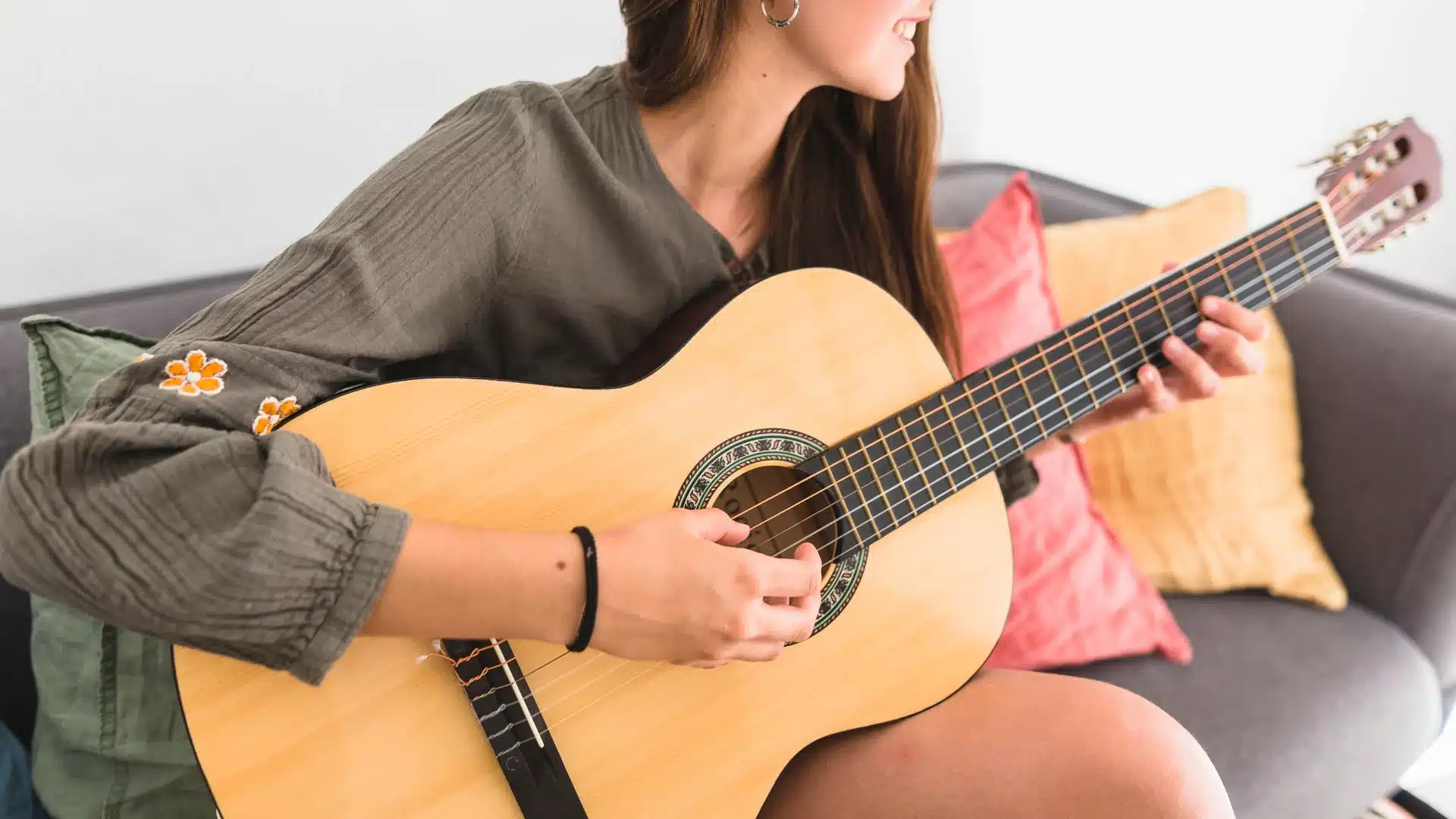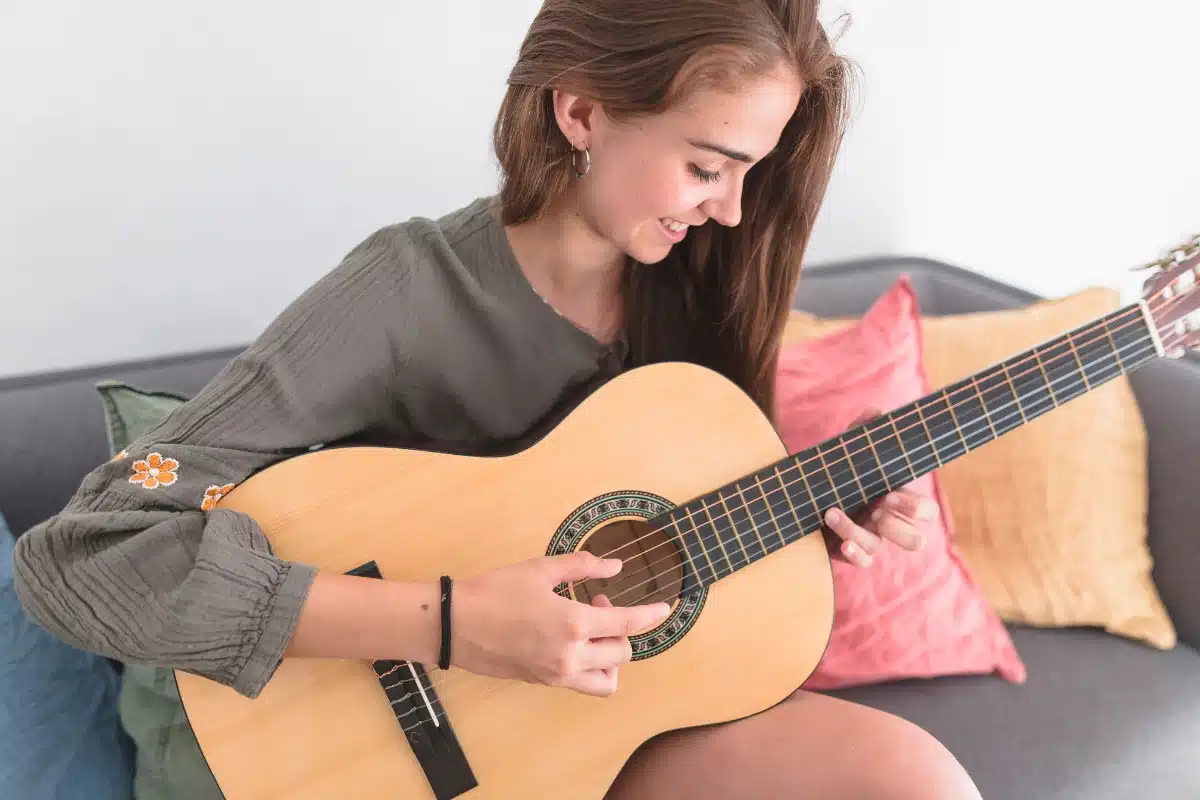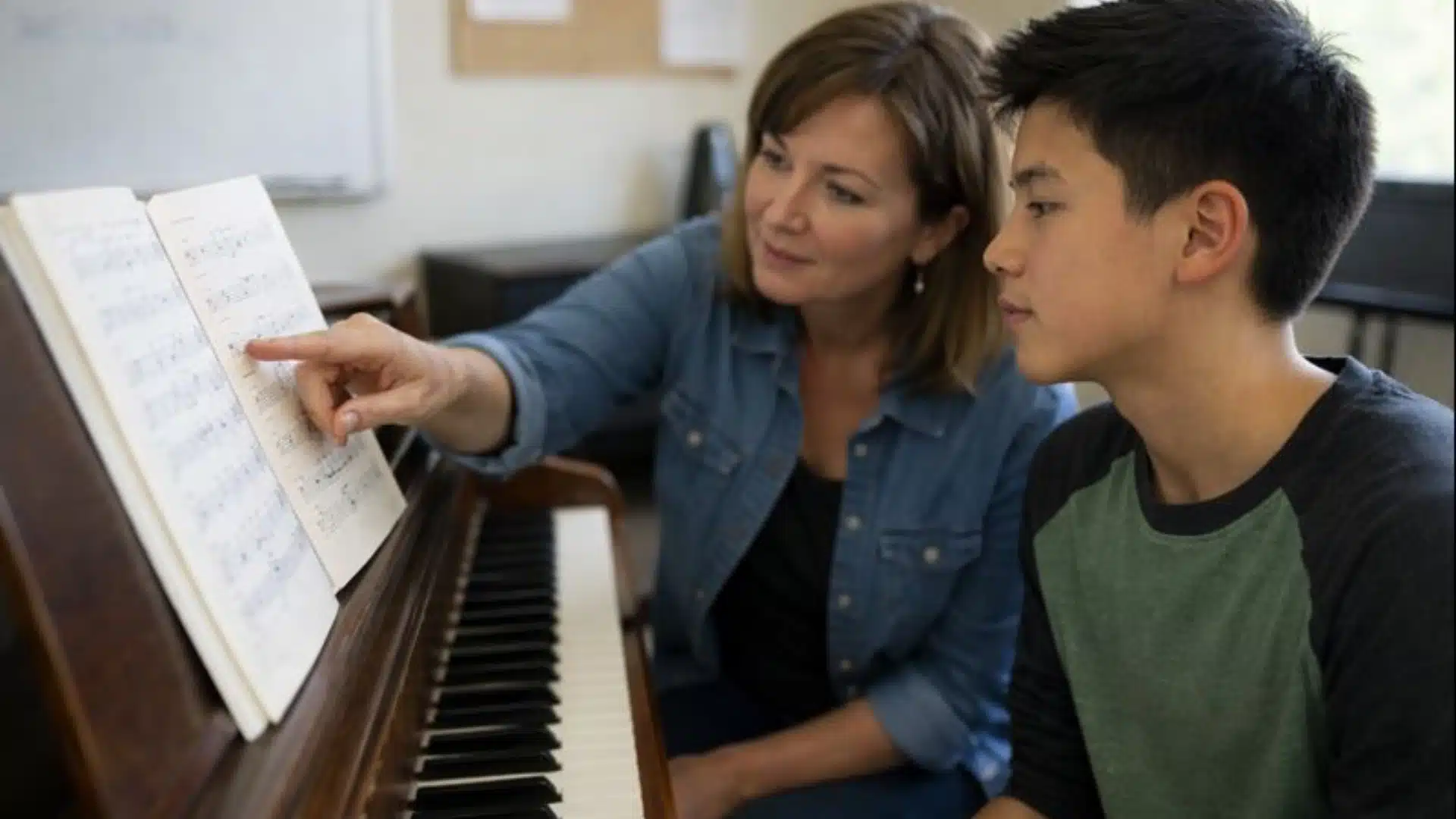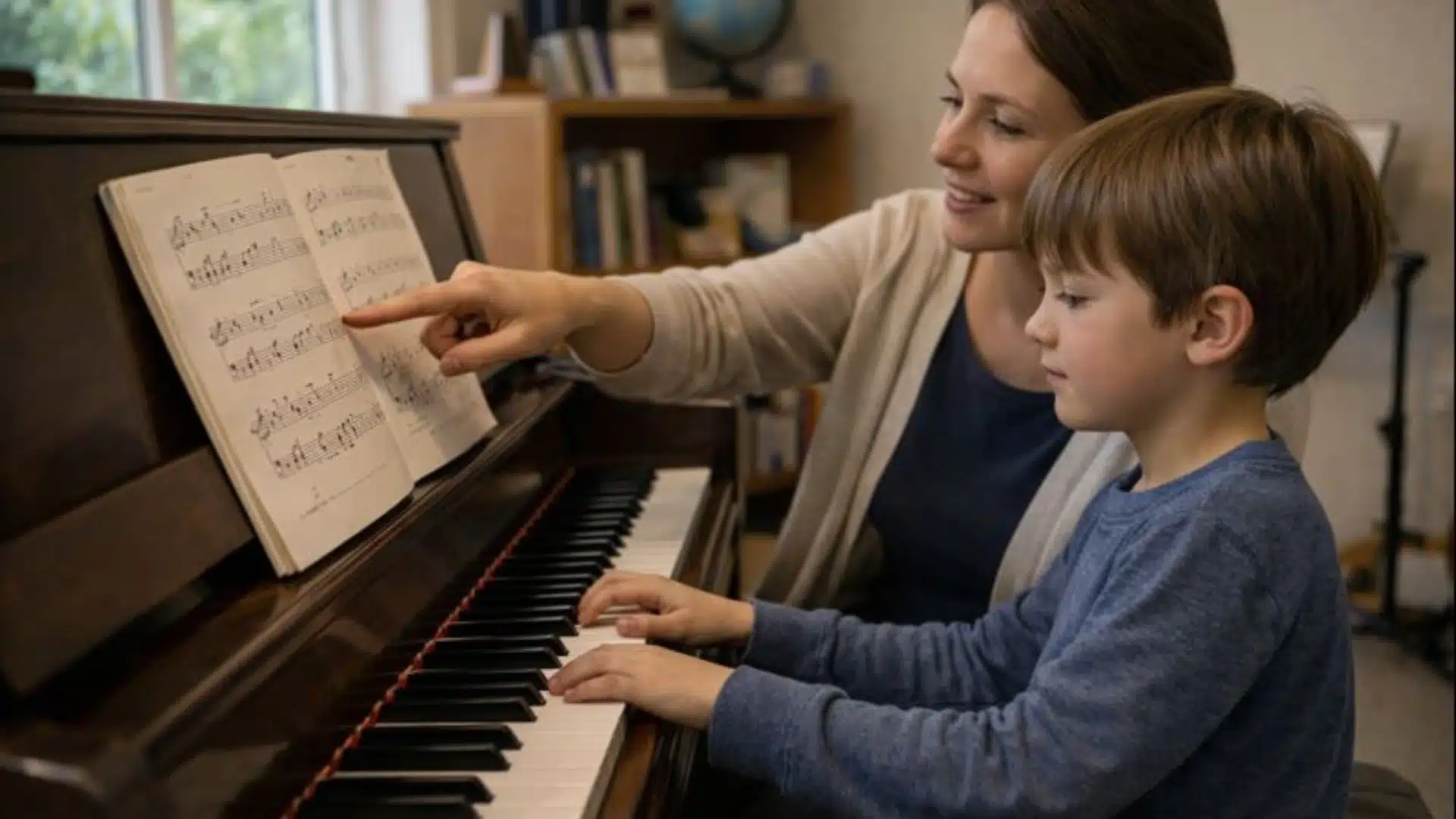Learning to play the guitar is one of those decisions that can truly change your life. It’s not just about mastering chords or strumming along to your favourite songs. Picking up the right instrument as a beginner can make the journey smoother, more inspiring, and let’s be real, way more enjoyable. The challenge? With numerous models, types, and brands available, selecting the best guitar for beginners can be a daunting task. That’s why we’ve created this comprehensive guide. Whether you’re buying your very first guitar or helping someone else start their musical path, this article will break everything down for you.
Why Choosing the Right Beginner Guitar Matters
Any guitar will do. Honestly, that’s where many beginners make their first mistake. A guitar that’s too large, too heavy, or uncomfortable can discourage you from playing. Imagine sitting down, excited to learn, and then giving up after ten minutes because your fingers hurt too much or the sound feels flat. The right beginner guitar should inspire you to keep going, not hold you back.
Acoustic vs Electric: Which Guitar Should Beginners Start With?
This is the most common debate new players face. Let’s weigh the pros and cons.
Acoustic Guitars for Beginners
- Pros: Simple setup, portable, no need for extra gear like amps. Great for folk, pop, and singer-songwriter styles.
- Cons: Steel strings can be tough on your fingers at first. Louder sound may be tricky in shared spaces.
Electric Guitars for Beginners
- Pros: Lighter string tension, often easier to play for small hands, versatile tones.
- Cons: Requires additional gear (amp, cables), can be more expensive, and is less portable.
So, which should you choose?
If you’re into Ed Sheeran-style acoustic vibes, go with an acoustic. If you love rock, blues, or metal, an electric guitar might be a better start. Ultimately, the best guitar for beginners depends on your personal taste and goals.
Size and Comfort: Finding the Right Fit
Not every guitar fits every player. Kids and smaller adults often do better with ¾-size guitars, while most adults can comfortably handle full-size models. Comfort is key; you want an instrument that feels natural in your hands. Think of it like shoes: even the best-looking pair won’t help if they don’t fit right.
Budget-Friendly Doesn’t Mean Low Quality
Many assume you need to spend thousands to get a decent guitar. The truth? You can find excellent beginner options under $500, and even under $300, that play beautifully and last for years. What matters is balance: solid build, comfortable playability, and good tone. Spending a little more up front can save you frustration later.
The Top 7 Best Guitars for Beginners in 2025
Here’s our carefully curated list of beginner-friendly guitars that strike a balance between affordability, quality, and ease of use.
- Yamaha FG800 (Acoustic) – A classic choice for students worldwide. It’s durable, has a warm sound, and is known for staying in tune. Perfect for anyone starting acoustic lessons.
- Fender CD-60S (Acoustic) – Lightweight with a bright tone, this guitar is often recommended by teachers. Affordable and easy to play right out of the box.
- Ibanez GRX70QA (Electric) – For rock lovers, this model is a gem. Stylish, versatile, and comfortable for long practice sessions.
- Squier Stratocaster (Electric) – Beginner-friendly, reliable, and capable of producing the legendary Strat sound. A perfect entry point into electric guitars.
- Epiphone DR-100 (Acoustic) – Budget-friendly without feeling cheap. It’s a solid starter guitar with a balanced tone.
- Taylor Academy 12 (Acoustic) – A pricier pick but worth every penny. Designed specifically for learners, with excellent comfort and playability.
- Jackson JS22 Dinky (Electric) – Perfect for beginners leaning into more complex rock or metal. Lightweight and easy to handle, with a punchy sound.
How to Maintain Your Beginner Guitar
You don’t need to be a pro to keep your guitar in good shape. Here are some quick tips:
- Wipe down strings after every session to avoid rust.
- Store properly, avoiding extreme heat or humidity.
- Change strings regularly; old strings can sound dull and make practice less fun.
- Get a proper case; a gig bag is fine, but a hard case adds more protection.
Common Mistakes Beginners Make When Buying a Guitar
- Choosing only by looks. A flashy guitar doesn’t guarantee comfort or sound quality.
- Ignoring setup. Even the best guitar for beginners may require a minor adjustment from a local shop.
- Buying too cheaply. Pricing too low can lead to poor quality, discouraging learning and development.
- Skipping research. Reading reviews and guides like this one can save a lot of headaches.
Practical Buying Tips
- Try before you buy, even strumming a few chords in-store helps.
- Check online bundles. Many beginner guitars come with cases, tuners, and straps, making them perfect starter kits.
- Ask teachers for input. At music schools in Canada, such as the Music Star Learning Center in Vancouver, instructors often recommend beginner-friendly models tailored to students’ needs. They can also guide you toward structured Beginner Guitar Lessons that accelerate progress.
Beginner Guitar: First Steps After Buying
- Once you’ve got your instrument, what’s next? Start small:
- Learn basic chords like G, C, and D.
- Practise switching between chords slowly.
- Utilize online resources or consult with a teacher for guidance on proper guitar playing techniques and avoiding harmful habits.
- Don’t rush; it’s better to play cleanly and slowly than fast and messily.
Building Confidence as a Beginner
Every guitarist starts somewhere, and yes, your fingers will hurt a little in the beginning. But stick with it. Celebrate small wins, such as playing your first full song, mastering a tricky chord, or simply being able to switch smoothly between notes. These milestones keep you motivated.
Best Guitar for Beginners: Our Final Recommendation
If you’re entirely new, a Yamaha FG800 (acoustic) or a Squier Stratocaster (electric) is a safe bet. They balance cost, playability, and durability, making them favourites among teachers and students alike. Want to invest a bit more? Taylor’s Academy Series is one of the most comfortable beginner guitars on the market today.
Conclusion
Choosing the best guitar for beginners isn’t just about price or brand; it’s about finding an instrument that feels right in your hands, motivates you to practise, and suits your musical style. Whether you lean toward acoustic or electric, affordable or slightly premium, the perfect guitar is out there waiting. Start simple, stay consistent, and remember: the guitar you love to pick up is the one that will keep you learning.
Ready to start your journey? If you’re in Vancouver, Music Star Learning Center is here to guide you with expert-led Beginner Guitar Lessons. Why wait? Your first song is closer than you think.






